As Finance Minister Enoch Godongwana prepares to table the Medium-Term Budget Policy Statement on 1 November, South Africa’s education sector braces for potential budget cuts that could further strain an already struggling system. Dr Corrin Varady, CEO at IDEA, emphasises that despite substantial government funding allocated to education over the past four years, tangible outcomes remain elusive. “Instead of slashing budgets, we must focus on efficiently allocating resources to address these challenges.”
Four years have passed since the last Trends in International Mathematics and Science Study (TIMSS), which ranked South Africa among the bottom three nations. “This reality persists as South African learners continue to grapple with fundamental subjects such as mathematics and literacy. With the upcoming TIMSS assessments looming, South Africa’s education system faces intense scrutiny, demanding urgent attention and reform,” he points out.
“While tests like TIMSS and the Progress in International Reading Literacy Study (PIRLS) are not the sole measures of education quality, they serve as crucial litmus tests for assessing basic competencies,” acknowledges Dr Varady. “However, without addressing the substantial challenges facing South Africa’s education landscape, any significant improvement in these results remains unlikely.”
He cites the urgent need for clear intervention policies to drive positive outcomes, stressing that tackling the nation’s education crisis demands substantial investments in professional development and the deployment of digital learning resources.
Education for excellence
“Our education system grapples with a culture of passing students who are not ready to progress to the next grade, which means we are hindering our own success by setting the pass mark at 30%,” notes Dr Varady. “In contrast, if we look at successful models from other African countries, they embrace a culture of achievement. For them, education serves as a means for students to access higher education and employment opportunities beyond matriculation.”
While many nations focus on achieving globally recognised degrees and facilitating opportunities for their students to travel overseas, he says that South Africa faces a crucial question: What does matriculation truly mean in our context? “Currently, holding a matric certificate doesn’t carry the weight it should with employers. When a passing grade becomes insufficient, the entire system falters.”
To address this challenge, he stresses that the country must raise its standards associated with matriculation. “Our basic education space should not merely serve as a conveyor belt for students; it should be a platform for opening long-term opportunities. The importance of standardised assessments lies not in global comparisons but in their ability to provide essential data and metrics. They should enable us to identify problems as early as grade four, giving us years to implement remediation strategies.”
Prompt data-based remediation is essential
“Regrettably, the current approach involves hitting benchmarks at grades four and eight, but there is often little follow-up to address the identified challenges. Consequently, by the time students reach grade 12, they remain at the same level as they were in grade eight. South Africa’s struggle lies in failing to remediate issues promptly, creating a persistent challenge in our education system,” explains Dr. Varady.
He adds that another pressing concern is the reluctance to address the issue of mother tongue language in education. “The success of learners from a predominantly mother tongue language background remains a significant challenge. It’s a topic we can’t afford to skirt around, as it directly impacts our performance in international standardised tests. Many students struggle to comprehend the questions they’re asked simply because they aren’t in their mother tongue language.”
The COVID-19 pandemic has exacerbated existing challenges, resulting in significant learning losses. Dr Varady emphasises the importance of remediation programmes designed to address the foundational skills that students have lost during the pandemic. “Initiatives like the ‘Back on Track’ programme in the Western Cape offer potential models for mitigating learning losses and bridging educational gaps.”
An uphill battle for teachers
“Learning is undoubtedly challenging for students, but it’s equally, if not more, demanding for our teachers who now face the daunting task of instructing students who have entered their classrooms with vastly different skill levels,” he highlights. “Imagine being an excellent teacher assigned to teach the grade eight curriculum to students performing at a grade five level. It’s an exceptionally demanding situation, and teachers find themselves under scrutiny from principals and districts for their students’ performance. In reality, teachers often yearn to explain that their performance is hampered not by their teaching abilities but by the absence of foundational competencies in their students due to prior learning gaps. “
To support our educators, he urges the sector to consider introducing teaching assistant roles, facilitators, and digital learning instructors who can step in to provide targeted assistance. “Programmes such as before- and after-school initiatives, revision sessions, and digital resources for students outside of regular school hours become paramount.”
Solutions are on the horizon
“This underscores the critical need for continuous feedback for both students and teachers as they navigate the educational landscape. These dedicated educators face immense pressure to effectively deliver the curriculum. On average, teachers, especially in government schools, can typically cover approximately 70% of the curriculum during a school year, even before pandemic-induced challenges,” he adds. “The curriculum itself is extensive, but with these additional hurdles.”
“While the government has made efforts to streamline the curriculum for various subjects to facilitate smoother navigation, it ultimately boils down to how we can support our students in their remediation and revision efforts,” says Dr Varady. “If we can provide external resources to aid students in catching up, relieving some of the burden from teachers, we stand a better chance of getting our education system back on track.”
“Addressing this crisis necessitates a multifaceted approach, encompassing prudent budget allocation, pedagogical reforms, and comprehensive strategies to counteract learning losses. All stakeholders, from government bodies to corporate partners and citizens, must unite behind initiatives like ‘Back on Track’ and support our educators and students. It’s time for South Africa to recommit to higher educational standards and take tangible steps toward rebuilding its education system,” he concludes.

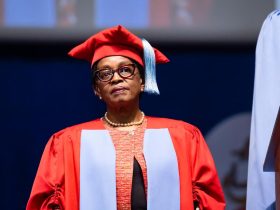





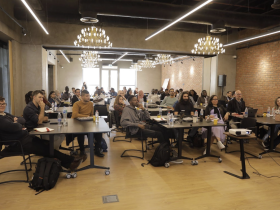


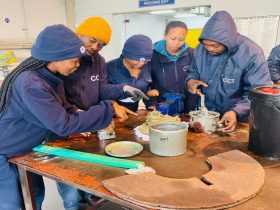








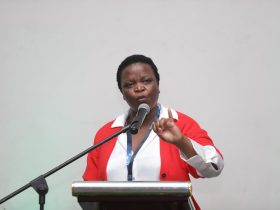

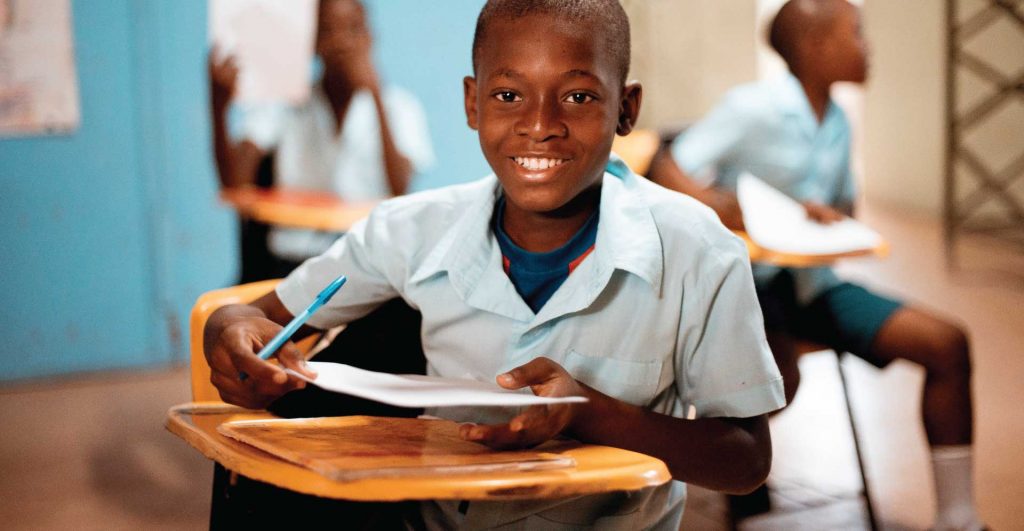


Leave a Reply